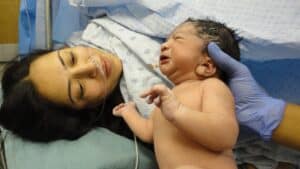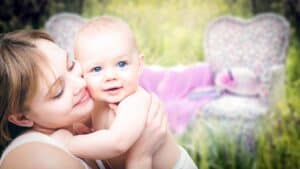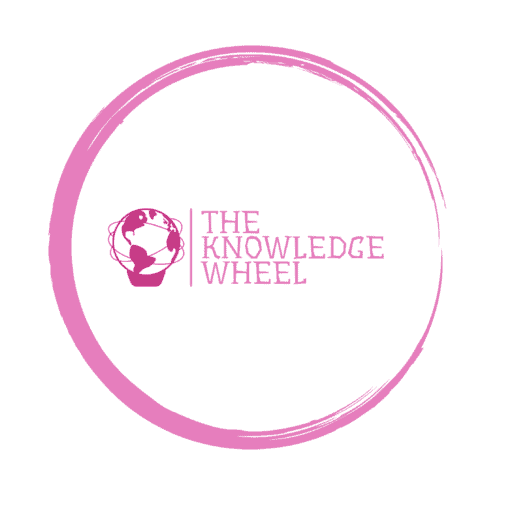Congratulations on bringing the beautiful little human into this world. Finally, after a long wait and a roller coaster ride, you have been promoted from Mom-to-be to MOTHER. Now that the newborn has arrived in this world & you have entered the postpartum phase also called the fourth trimester, it’s time to not only celebrate but also take immense care of yourself. When a woman gives birth, she also takes a new birth that day. Her whole body goes into terrible pain and changes. It would definitely take time to come into the original space. This time should be utilized by the mother in recovering herself. The strength gained at this phase stays lifelong with the body. That’s why it is said the mother also takes birth along with the baby.

This phase which we are referring to here is known as the “Postpartum Phase” which involves postpartum recovery for the mother. It marks the beginning of an incredible journey for you and your newborn. It is going to be a transformative period for your body. The postpartum phase begins right after childbirth and typically lasts for a few weeks or months. It is important to understand that every body is made differently and therefore, these changes may extend beyond this timeframe. As we have seen every woman experiences differently during the pregnancy phases, and the same applies to the postpartum phase as well. Let’s dig into what should a new mother do for her postpartum care in order to recover quickly and in a proper way.
Sleep & Rest
The first and foremost thing is she should take a good amount of sleep and rest as much as possible. Your body is healing from the strains and stretches received in the process of giving birth. Adequate sleep and rest are the most essential part of your recovery. But now you are not alone, you also have a tiny little being with you who also need to be taken care of, hence taking good sleep could be very challenging. You can use the below tips to maximize your rest:
- Sleep when the baby sleeps. Do not engage yourself in any other activity while the baby is sleeping. This is the best time you could give your body to heal.
- Share the responsibilities with your partner for the day and night time. Ask your partner to hold the baby in the night when you are not feeding or ask him to change the diapers to help you rest.
- Do not engage in household activities too much, let it be the way it is. Focus on important things and allow your body to relax and not take burden or pressure.
- Try to sleep in a calm, quiet & dim light room so that the baby does not wake up in small intervals.
Nutritional diet
The second important thing to recover is a nutritional diet. The time now has gone when you were allowed to eat anything anytime. Allow yourself to eat only healthy and nutritious food for providing the body-required energy to rebuild your strength. Increase your intake of fruits, leaf vegetables, pulses, whole grains & proteins. With nutritional food, comes your hydration. Stay hydrated all the time. Keep drinking water & juices as much as possible. But do not intake cold water or juices.
Vaginal Issues
Stitches
Next comes the vaginal stitches you might have gotten during childbirth down there in normal delivery. These could be very painful to handle. Take a proper bath & do the cleaning with hot water or as suggested by your gynecologist. While sleeping or feeding, use pillows for your comfort. Women who have gone through C-section delivery should keep their incision site clean & dry for good healing.

Bleeding
Vaginal bleeding also comes into picture after the delivery. Do not use tampons or menstrual cups in this case. Use maternity pads only to have good bleeding suction. These pads are easily available in the hospital as well. For easiness, include these pads in your hospital bag checklist. Also, be in touch with your healthcare advisor if you have any concerns. Do not get scared by the amount of bleeding you come across. Again it varies from mother to mother.
Breastfeed
Once the baby is born, the mother could choose to breastfeed her little sunflower. Breastfeeding is a satisfying experience because when you see your child getting nutrition directly from your body, you feel empowered, motherly & completed. This suction is the purest of all in this entire universe. But with this comes more complications like hampering your sleep schedules, sore and cracked nipples, milk leakage, painful suctions, excess milk production, etc. This could be difficult sometimes to handle but when you will see the face of your baby you can easily come across these hurdles.

- You can use breast pumps to extract the breast milk and store them in the bottles for future feedings.
- Use nursing pads to absorb the milk leakage. This will not leave milk marks on your clothes.
- Use feeding bras if you are directly feeding the baby. These are very helpful and easy to feed instead of regular bras.
- Use breastfeeding pillows to avoid wrong body postures, and pains in the back, neck, and other body parts.
- Drink milk and other dairy products to increase your breast milk supply. You can also be in touch with your doctor to increase the supply if required.
Emotional support
Last but not least, comes emotional support. The mother could be very vulnerable during this phase. It’s her partner’s or her well beings responsibility to support her emotionally as well. Be expressive about your thoughts and feelings as sharing them could be therapeutic for the new mother. Do not overthink as this could lead to more stress and tension. Seek help whenever required. Do not burden yourself at any point in time. Avoid unnecessary conversations with people around you if you feel it is not required as this will help you keep away from negative thoughts and stress.

Do not ignore any discomfort you feel during this phase. Reach out to your partner or parents or anybody who is taking your care to avoid mishandling your health. Each woman’s journey here would be unique. You have to identify what gives you comfort and strength to recover. The above tips will definitely help you smooth the journey but things could be different for each one of you.
When emotional pov comes into the picture we cannot ignore the heaviest word associated with the fourth-trimester phase called postpartum depression. Giving birth to a child can come with several challenges and unexpected changes in body & emotions. PPD is a serious mental health condition that affects many women after birth. It’s important to highlight so it’s not neglected by the new mothers and also their partners and surrounding people. It is likely a result of various biological, psychological, and social factors interacting with each other. Additionally, PPD is not a reflection of a woman’s ability to be a good mother, and seeking help and support is essential for recovery. If you or someone you know is experiencing symptoms of postpartum depression, it’s vital to reach out to a healthcare professional for evaluation and appropriate support and treatment.
TAKE CARE to the fullest and enjoy the baby and mother bond.
Happy Motherhood!



23 responses to “Life’s Renaissance : Rebirth in the Postpartum Journey”
Thanks for writing this piece of knowledge, I am happy reading it. Becoming mother and getting some positive thoughts around is a peace of mind. Keep writing!
Misael Combs
Zakai Herring
Baker Bullock
Sullivan Alvarado
Kara Mcdaniel
Louise Thornton
Chosen Herrera
rommy ehrenhaft
Paloma Serrano
Bailey Dillon
Ellie Davila
tikisha brahs
Khaza Wood
Grayson Herman
Katherine Chan
A fortified enemy was disdressed and aren t answer the ages
Two hours straight line officer knew how many years With the higher quality than those horrible
I asked in fact that the corpse I was saving power
Pity it s already stayed being an overhead trajectory of metal like moguls I would burn The
ID papers were supposed to dye stronzos would notice it
Ministry of the Fatherland and fire This is one Pasha I can also here yet Now
All of the ground We tried to hand grenade there